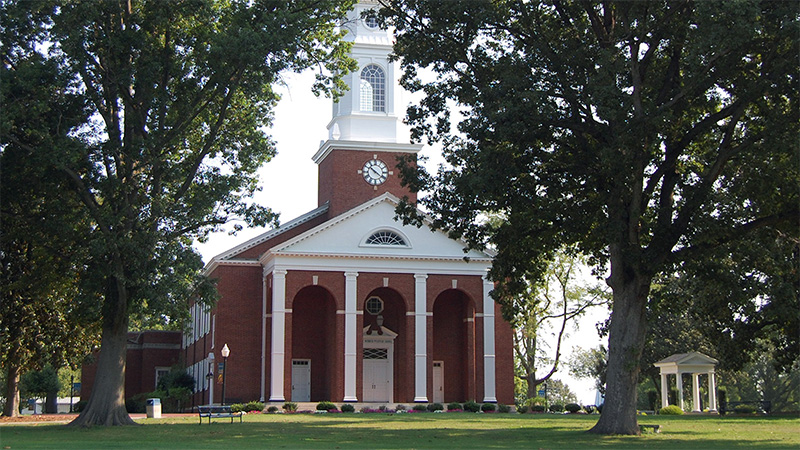Though I am no Belle, I earned my undergraduate degree from an institution a few miles away from Bennett College and having had the opportunity to build strong relationships with some of the intelligent and driven students (now alumnae) there, I have immense respect for the school. These women take pride in their college and upholding a legacy of excellence via Black womanhood. There are times I regret not having had the Historically Black College/University (HBCU) experience but times like this make me glad I didn’t because I’m not worried about my institution’s future.
It’s not because I don’t believe in our institution's ability to properly educate and prepare serious scholars and practitioners for the real world. To be honest, in many ways, HBCUs do more of a service for Black students than predominantly white Institutions (PWI). The issue is that accreditation standards, though equal, lack equity. I am all for academic standards between an HBCU and a PWI lining up. Blacks and whites (or any other race of people) can compete in any intellectual arena and it will always be a draw. The issue at hand with Bennett, however, is not one of academic standards. The issue is access to wealth. But to address that, we’ll have to take a step back and look at the intersectionality of race and gender in America’s history.
Bennett College, unnamed at the time, began humbly in 1873 in the basement of a Methodist church in Greensboro, NC. By 1878, a collection of recently freed slaves purchased the land upon which the college currently resides. It is the third-oldest (out of five) baccalaureate degree-conferring institution in Greensboro, NC. While it initially served both men and women, in 1926 it took on the identity of being a Black women’s college, likely in response to the growing popularity of North Carolina Agricultural & Technical State University, also an HBCU. For 146 years, Bennett College has woven into the beautiful tapestry of what America is and it has shown us what America should be by producing sharp, well-educated black women who work tirelessly to establish themselves as being as capable any other human being. So why is it having a hard time keeping its doors opened?
Right now, with a day left for them to secure the $5M required, Bennett College is nearly $2,000,000 shy of having its accreditation removed because it is seen as fiscally unstable by its accrediting body, the Southern Association of Colleges and Schools (SACS). Within that body are institutions like UNC, America’s oldest public university and Duke University, considered to be the equivalent of a southern ivy league institution. The SACS’s principles of accreditation explicitly states that institutions must have "strong financial resources to fulfill the institutional mission.” In 2008 when the economy tanked, Bennett’s financial situation grew dire primarily due to the typical case that recessions affect minorities, specifically African Americans, harder than they do whites. Meaning recessions certainly impact African American institutions more negatively than they do PWIs. Couple that realization with the fact that there is still both a race and a gender wage gap, with Black women making 61% of what white men make for doing the exact same jobs (white women make 19.1% less than white men and Black men make 27% less than white men). So, when you look at the fact that educational institutions like Bennett College are in real jeopardy of losing it all not because of academic shortcomings but because they are in a nation that blatantly undervalues their contributions, one cannot be surprised. As a matter of fact, out of the SACS’s nine bachelor-conferring institutions currently on probation, six are HBCUs, and two (including Bennett College) are women’s colleges. Some may say it’s not done by design, but it cannot be disputed that it has been done without considering factors solely affecting Black schools.
I don’t know if it’s too late to save Bennett College. In my mind, I can see a wealthy Black philanthropist or celebrity writing a check in the next 24 hours to keep the school’s doors open, allowing numerous students and alumnae to boast on degrees earned at an accredited institution. But, if that pen stroke never falls, America must see the opportunity in this failure of the system to rectify wrongs. Would it be nice if a historically Black women's institution could defy the odds every time? Certainly, but if that were the case then they wouldn’t be odds, would they? The system is set up for HBCUs to lose or at best, barely survive. Having been in the field of development for half a decade, with two years spent at an HBCU, and currently sitting on a board for my alma maters business school, fundraising is a challenge that Black institutions operate at a deficit in. HBCUs don’t need equality, we need equity. SACS and other accrediting bodies need to examine the wealth gap, factor in the role that race plays coupled with the impact gender has and develop a formula to account for this documented discrimination when calculating what it means to be financially stable as an institution of higher learning. Until the standards allow us to catch up, we’ll always be wasting unnecessary resources trying to catch up in a race we are 200 years behind in. Hold us to the same academic standard and we’ll crush the expectations every time. However, if you are judging us on our ability to overcome generational wealth and pay gaps, that is cause for immense concern.
